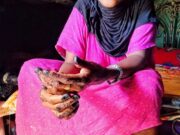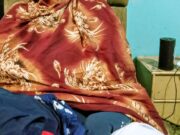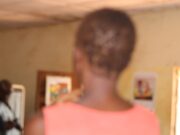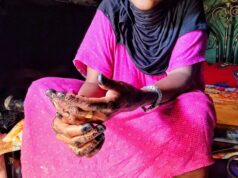By Maryanne W. Waweru l wawerumw@gmail.com l @MaryanneWaweru
37-year-old Sadiya is a mother of nine. Her eldest child is 22, while her youngest is aged two years. Sadiya says that were it not for her good friend and former neighbour in Eastleigh’s 7th street known as Mama Kevo, she would ‘probably be a mother of 16 children by now’.
But who is Mama Kevo, and how is she connected to Sadiya’s family size?
“My first three children were born in 2001, 2003 and 2005. I was a teenager when I had them, and it was very tough. For about five years, I was either pregnant or breastfeeding. It wasn’t easy,” Sadiya remembers.
Additionally, as a housewife, Sadiya was responsible for all the domestic chores. She describes it as being a ‘hectic time’ as she was always in a rush to complete task after task, while still caring for her pregnancy, infant or toddler.
Not in control
“My husband, a clothes seller in one of the shopping malls in Eastleigh would leave for work in the morning and return late in the evening. Whenever I needed to rush to the market, I would knock on neighbour’s doors, pleading with them to watch over my children as I made the quick dash.”
One day, one of these neighbours, Mama Kevo, sat Sadiya down and told her that she needed to take charge of her life as she appeared not to be in control.
“Since I was always complaining about how tired I was, Mama Kevo asked me if I was ready for another child. I said I didn’t know. All I knew was that I was always tired.
Mama Kevo told me that since I already had three children –each two years apart, it was time to give my body a break. She advised that my body needed time to recover from the nutrients I had lost with each pregnancy and breastfeeding experience. She shared information about contraceptives and how they could help me delay my next pregnancy.”
Getting husband’s permission
Mama Kevo’s suggestion sounded like a good idea and over the next few days, Sadiya pondered over how to approach her husband about it. Anxious, she wondered if her husband would agree with her about delaying the next pregnancy.
Sadiya found relief when a few weeks later, she mustered the courage to have the conversation with her husband, and it went positively.
“My community values large families and Somali women are expected to give birth every two years. I took time to explain to him that the spacing of our three children was very stressful for me. I told him that while I was not refusing to have more children, I just needed a break. Thankfully, he saw my point of view and allowed me to go to the family planning clinic.”
Mama Kevo’s moral support
The following day, Sadiya knocked on Mama Kevo’s door, this time round not to ask her to mind her children but to take her to a family planning clinic. Sadiya had never been to a health facility for family planning services, and was nervous about the experience.
“Mama Kevo took me to a public health facility near where we lived. There, we found a nurse who took time to give me more details about the benefits of family planning and the different options. I chose the three-month injection. Mama Kevo sat next to me through it all, which put me at ease.”
Sadiya would then return to the clinic every three months to renew her injection. When her youngest child turned three years in 2008, she didn’t renew the injection as she felt ready to get pregnant again.
“I conceived and gave birth to my fourth child at the end of that year. After that, new motherhood consumed me and I forgot to go to the family planning clinic and that is how I conceived soon after, giving birth to my fifth child in 2009. I had not planned on getting pregnant again that soon, but it happened.”
Avoiding another surprise pregnancy
A few weeks after that delivery, Mama Kevo reminded Sadiya to go to the family planning clinic, which she did.
When Sadiya felt that her fifth born was old enough, she didn’t renew the contraceptive injection and conceived soon after, delivering her sixth child in 2012.
“My seventh, eighth and ninth children were born in 2015, 2017 and 2021 respectively. For now, I think I won’t give birth anymore because over the last few years, I have been enduring severe pain in my back. I cannot even bend without screaming out in pain! I’m constantly on painkillers, swallowing them like groundnuts!”
To prevent another pregnancy, Sadiya is now taking the daily pill.
“I think the injection was adding to my back pain, so I asked the nurse to give me the pill instead. I’ve been told about the implant, but I’m scared of having something like that in my body for three to five years. For now, I thank Mama Kevo for having introduced me to family planning because were it not for her, I would probably be on my 16th child,” she says, laughing.
Family planning use by Somali women
Sadiya is among the 24% of married Somali refugee women in Nairobi who use contraceptives. This is according to research by Dr. Eliphas Gitonga Makunyi, a population and sexual reproductive health expert and lecturer at Kenyatta University.
The study sought to examine the dynamics and predictors of utilization of modern family planning among refugee and native married Somali refugee women living in Nairobi. Somali refugees in Kenya originate from Somalia, Ethiopia, and Djibouti. The native Somali women are from Nairobi and the northern region of Kenya. The study was concentrated in the three sub-counties of Kamukunji, Embakasi, and Ruaraka –areas where a significant population of the Somali community live.
The study established the prevalence of modern family planning among Somali refugee women as 24%, compared to that of 43.5% among native Somali women.
Among the Somali refugee women using family planning, the preferred methods are Implant (31%), male condom (27%), injectable (19%), Intra uterine device (10%), pill (9%) and others (4%).
Among the native Somali women using family planning, the preferred methods are injectable (40%), Implant (26%), pill (21%), Intra uterine device (6%), male condom (3.5%) and others (3.5%).
Somali men are the decision-makers
The women who participated in the study indicated that the Somali community is heavily patriarchal with most decisions being made by men, including those pertaining to women’s reproductive health. It is standard for men to be consulted on key decisions. The study established that a husband’s disapproval of family planning reduces a woman’s likelihood of utilization. Sadiya was able to use family planning only after discussing it with her husband and getting his nod.
Cosmopolitan neighbourhoods
It is estimated that 65% of households in the Eastlands part of Nairobi are occupied by the Somali community. The study established that Somali women who live in cosmopolitan areas and who subsequently have more interaction with women from other communities are more likely to use family planning.
“The nature of interaction in cosmopolitan areas contributes to a change in perception or attitude towards contraception. This includes deep-held community beliefs and cultural practices. Further, in urban areas there is more communication through media and technology, which present opportunities to debunk myths, misconceptions and negative cultures,” says Dr. Gitonga.
This statement is exemplified by Sadiya’s experience, where her good friend Mama Kevo influenced her to use family planning.
Among others, the study recommends multimodal interventions to increase use of family planning among refugees, as well as the need for targeted policies to increase constructive male engagement with regard to family planning.
Learn more about the study here.
Do you have feedback on this article? Comment down below or email me at wawerumw@gmail.com
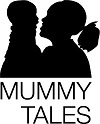 Mummy Tales is a platform dedicated to empowering its readers on different aspects of womanhood and motherhood. Read more motherhood experiences of Kenyan moms here. Connect with Mummy Tales on: FACEBOOK l YOU TUBE l INSTAGRAM l TWITTER
Mummy Tales is a platform dedicated to empowering its readers on different aspects of womanhood and motherhood. Read more motherhood experiences of Kenyan moms here. Connect with Mummy Tales on: FACEBOOK l YOU TUBE l INSTAGRAM l TWITTER














